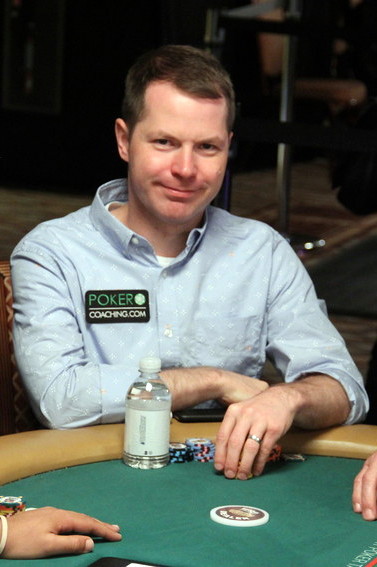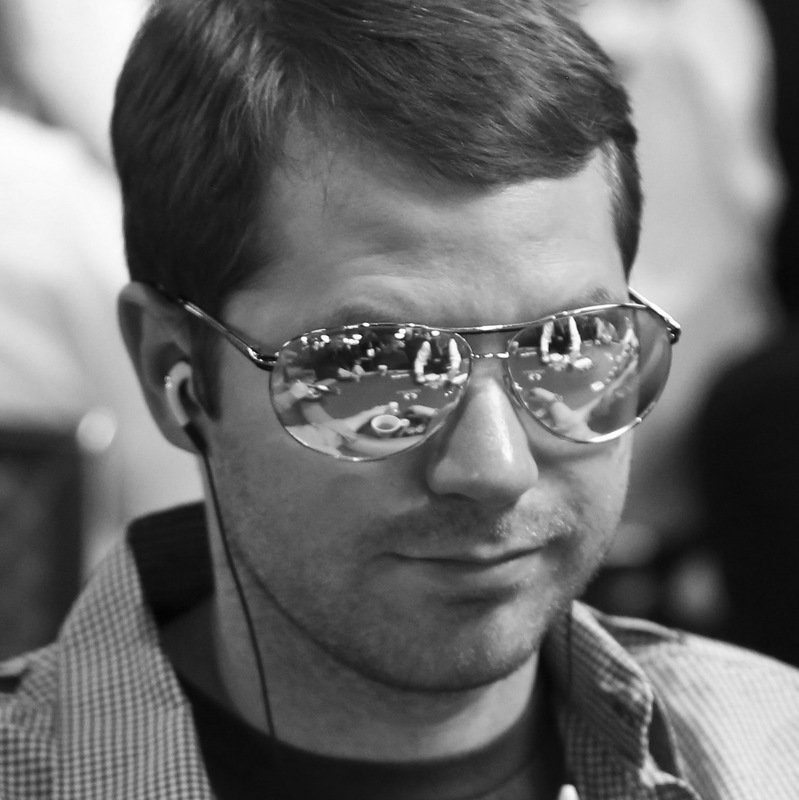






Poker Strategy With Jonathan Little: Five Ideas To Improve Your Poker SkillsSome Tips To Ensure You Stay Competitive |
|
|
Card Player Magazine, available in print and online, covers poker strategy, poker news, online and casino poker, and poker legislation. Sign up today for a digital subscription to access more than 800 magazine issues and get 26 new issues per year!
 Poker is a difficult game. If you are not consistently improving your skills, the game is certain to pass you by, ensuring you eventually become a losing player. Don’t let that happen!
Poker is a difficult game. If you are not consistently improving your skills, the game is certain to pass you by, ensuring you eventually become a losing player. Don’t let that happen!
Here are five ideas that, if applied intelligently, will ensure you stay competitive. While you may already implement these ideas on a regular basis, it is always beneficial to have them at the front of your mind.
1. Treat yourself like a mental athlete.
It is well known that most world-class athletes eat an almost perfect diet and spend at least some time in the gym. Since poker is a mental game, you should treat your mind as if it is the body of a world-class athlete, assuming you actually aspire to be great at poker. If you are drinking a lot of alcohol, eating unhealthy foods, or abusing drugs, you are filling your mind with filth that will eventually diminish your mental capacities. The sooner you get destructive substances out of your system, the better. Especially if you want to succeed long term, treat your mind and body well.
2. Study the players who beat your games.
While it is fun and exciting to watch world-class players compete at the highest levels, it is usually not the best way to learn. It is important to understand that the hands they play rarely give an accurate picture of the world-class player’s overall game plan. When you see one of these players attempt an insane bluff, understand that they have a specific image and are attempting the bluff for a specific reason. They are not running the bluff just because they feel like bluffing or because they bluff almost all of the time. While they may frequently bluff with a specific hand combination, they may also think that their opponent folds way too often, allowing them to bluff far more often than the GTO (game theory optimal) strategy indicates. Essentially, it is difficult to know why someone is adjusting without the full picture, which you never have as an outside viewer.
Instead of studying the highest stakes players in the highest stakes games, study the best players in the games you play. Every time you sit at the poker table, especially if you are a small- or mid-stakes player, you will be at the table with players who are better than you. Pay attention to the plays they make that allow them to win. Make a point to incorporate those plays into your strategy. You may find that as you move up, some of the plays that worked in the small-stakes games no longer work in the higher stakes games. So, pay attention to the winners in your new game and repeat the process. If you find your mind wandering while at the poker table, you are not using your time wisely. You only have so much time on this earth. Don’t squander it!
3. Think about your opponents’ ranges.
If you routinely put your opponent on one specific hand, you are certainly playing poorly. As a basic example, if a tight player raises from first position, you should not put him squarely on A-A, A-J, or any other specific hand. Instead, you should put him on a range of hands, perhaps A-A, K-K, Q-Q, J-J, 10-10, 9-9, A-K and A-Q. You can then narrow that range as the hand progresses based on his actions on the flop, turn and river.
If you put your opponent on one hand from the start, you will make significant blunders due to not assessing each situation properly. I thoroughly discuss how to assess ranges on my training site. Get your free trial membership now at PokerCoaching.com.
4. Stop continuation betting with 100 percent of your range.
In my first book, Secrets of Professional Tournament Poker, Volume 1, I suggested that you should continuation bet close to 100 percent of the time. While this advice was spot-on a few years ago when most players folded too often, in today’s games, you should lower your continuation bet percentage a bit. You should tend to check when the board does not favor your range, as well as when you have absolute trash, when you have a marginal made hand that cannot withstand significant aggression, and when you fail to connect with the board in a multiway pot. That said, I still continuation bet more often than most players because even today, most players fold a bit too often, especially to small 25 percent pot bets.
5. Double and triple barrel more often.
Most players now know to continue against flop continuation bets with a somewhat wide range including made hands, draws, and the occasional hand that has only a little potential to improve but will have lots of bluffing opportunities. They also know to continue against turn bets with any sort of made hand or reasonable draw. However, when you make a sizable river bet, most opponents will give you credit for a strong value hand.
So, do not be afraid to get out of line and make a sizable bet, especially when you have little to no chance of winning at the showdown. Of course, if your specific opponent calls you down with a weak bluff catcher, reverse this advice and start value betting relentlessly on all three streets, extracting maximum value with marginal made hands like top pair with a bad kicker. Do not be afraid to get out of line in order to take advantage of the mistakes your opponents make.
While there are many other things you should do to ensure you are on the road to poker success, I hope you have found these five tips to be helpful. Thanks for reading and good luck in your games! ♠
 Jonathan Little is a professional poker player and best-selling poker author with over $7,000,000 in live tournament earnings. If you want to learn how to play fundamentally sound poker and increase your win rate, check out PokerCoaching.com. Click here to try PokerCoaching.com for free.
Jonathan Little is a professional poker player and best-selling poker author with over $7,000,000 in live tournament earnings. If you want to learn how to play fundamentally sound poker and increase your win rate, check out PokerCoaching.com. Click here to try PokerCoaching.com for free.
